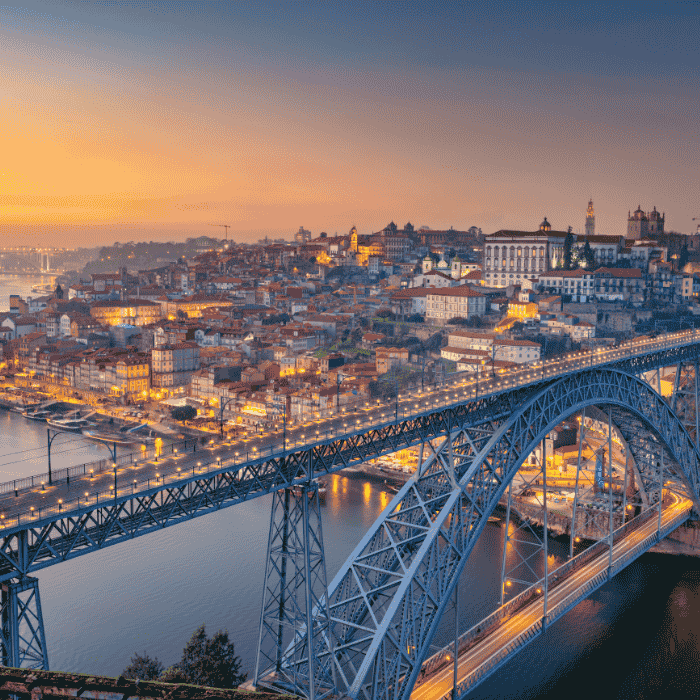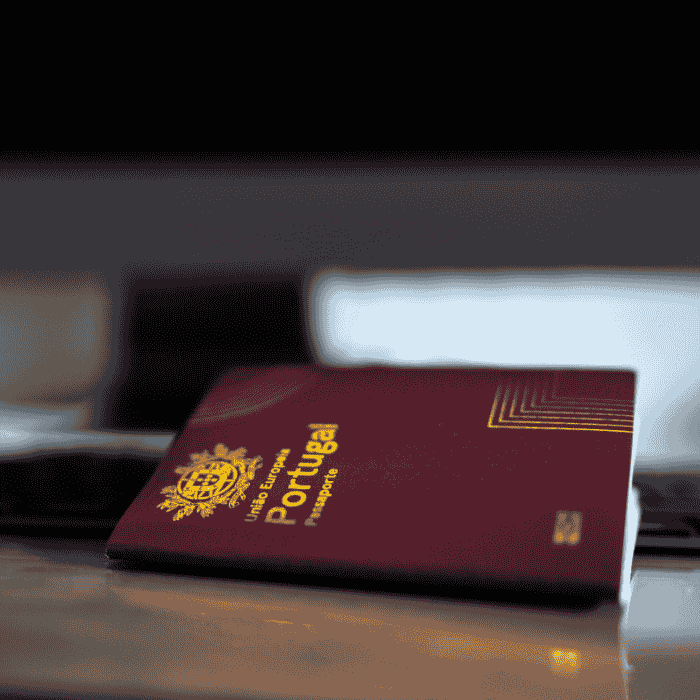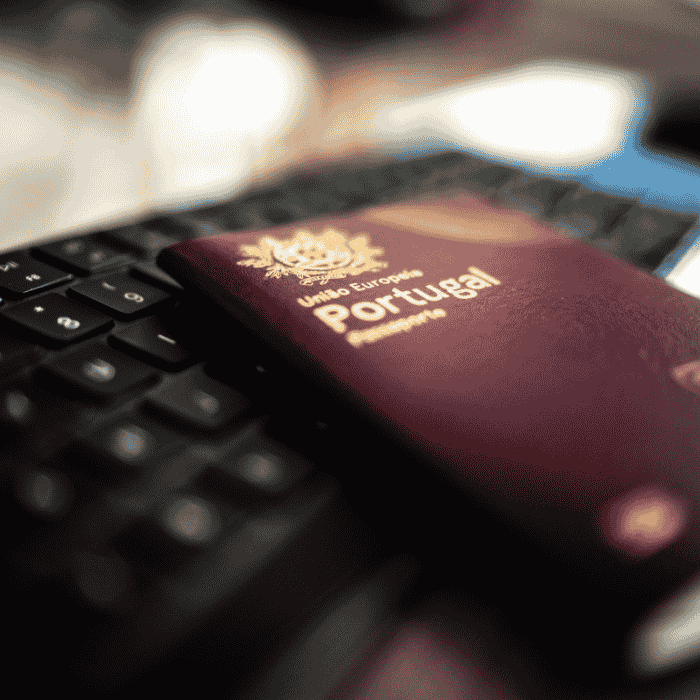D2 Visa Portugal – Entrepreneur Visa 2025 - Complete Guide
Complete guide to D2 Visa Portugal 2025. Learn eligibility, investment requirements, application steps, fees, timelines, residency path, and tips for success. Apply for the Portugal D2 Visa Portugal with MetConnect. We handle requirements, paperwork, and strategy—so you can launch your business and secure residency with confidence.

The Portugal D2 Visa (Entrepreneur Visa) is a residency visa for non‑EU/EEA/Swiss nationals who want to start or move a business in Portugal. It grants a multiple-entry stay (two entries) of up to 4 months (120 days)during which you must apply for a Portuguese residence permit.
Designed to attract foreign investment and entrepreneurship, the D2 visa allows founders, freelancers or independent professionals to live in Portugal while building a company. Through this route, entrepreneurs gain access to the EU market, can include family members, and after five years of residence may qualify for permanent residency or Portuguese citizenship. (Portugal’s immigration agency SEF has been replaced by AIMA as of 2024.)
At MetConnect LDA, we specialize in helping global entrepreneurs launch their businesses and secure residency in Portugal through the D2 Visa. From crafting your business plan to navigating consulate paperwork and local setup, our team supports you every step of the way.
Who Is Eligible for the D2 Visa Portugal?
To qualify for the D2 Visa, you must be a citizen of a non‑EU/EEA/Swiss country and plan to engage in economic activity in Portugal. Eligible candidates include:
All applicants must submit a viable business plan that details the business model, market, and economic impact (e.g., job creation or innovation). There is no fixed minimum investment, but you must show adequate capital to launch the venture. In practice, Portuguese small companies often start with approximately €5,000 in share capital.
Crucially, you must prove sufficient means of subsistence for yourself (and dependents) in Portugal. Portuguese rules require showing funds to cover about 12 months of living expenses – roughly €10,440 for a year – through bank statements or sponsor guarantees.
Freelancers must demonstrate relevant qualifications or experience and usually provide signed contracts from Portuguese clients or employers.
You should also have (or be ready to register) a Portuguese company, as evidence of company registration (or in-process documentation) is expected.
Key Eligibility: Non-EU nationality, viable business plan, financial means for investment and living expenses. (Portugal’s new startup visa program under IAPMEI is a related route for certified innovation projects.)
Key Benefits of the Portugal's D2 Visa
Portugal’s D2 Entrepreneur Visa provides a range of significant benefits for aspiring business owners:
These benefits make the D2 visa an attractive alternative to other paths (e.g. Golden Visa, D7 Passive Income Visa), especially if you want to actively build a company.
Portugal D2 Visa Requirements & Documentation
The D2 visa application is document-intensive. You will need to gather:
All foreign documents must be legalized and translated to Portuguese or English. (Note: Portugal recently introduced online scheduling for residency appointments – see AIMA’s announcement – and visa applicants may book an appointment via the consulate’s system.
Portugal D2 Visa Application – Step-by-Step Guide
Throughout the process, consider professional Legal Support to handle paperwork and Portuguese bureaucracy, as the process can be complex

💡 Need Help?
MetConnect offers complete application support, including consulate document preparation, Portuguese company formation, and local bank account setup.
What to Do After Arriving in Portugal
Once you have your D2 visa and have arrived, focus on establishing your business and meeting residence obligations:
By actively living in Portugal and growing your business, you cement your path toward long-term residency and eventual citizenship.
D2 Portugal Visa to Permanent Residency & Citizenship Path
The D2 Visa leads directly to Portuguese permanent residency and citizenship opportunities:
In short, the D2 visa is a long-term residency path: build your business for five years, meet the stay requirements and language test, and you can become a Portuguese citizen.
D2 Portugal Visa Fees, Processing Times & Application Timeline (2025)
Tip: Start early on document preparation and consular appointments.
Working with a local team like MetConnect LDA can help you stay on track with deadlines, avoid costly delays, and ensure your business and legal documents meet all D2 Visa requirements. From company registration to legal translations, we handle it all—accurately and efficiently.
Common Application Mistakes & Expert Tips for Success
Expert Tip: Make Your D2 Visa Portugal Journey Smoother with Professional Help
Navigating the D2 Visa Portugal process can be complex—especially when it comes to company formation, legal documentation, and scheduling your AIMA residence appointment. Working with local professionals ensures that every step, from drafting a compliant business plan to preparing interview documents, is handled accurately and efficiently.
At MetConnect, our dedicated teams offer full support through our Business Registration and Legal Support services. By involving experts early, you reduce delays, avoid costly mistakes, and improve your chances of a smooth approval.

FAQ: Common Questions
The D2 visa is a Portuguese residency visa for non-EU nationals who want to start or invest in a business in Portugal. It grants a temporary residency permit (renewable) with the goal of stimulating foreign entrepreneurship.
Eligible applicants are foreigners (non-EU/EEA/Swiss) planning to open a company, invest in a Portuguese business, or work as self-employed professionals in Portugal. Independent professionals must have relevant qualifications and typically an offer or contract in hand
You need a solid business plan, proof of financial means (approximately €10,440 for one year), valid passport, health insurance, clean criminal record, Portuguese company registration (or plan to register), and sufficient funds to both invest in the business and support living expenses
First, submit your dossier to a Portuguese consulate in your home country. Approval takes ~2–4 weeks. Once you get the D2 visa (valid 120 days), enter Portugal, register your address, and schedule an AIMA appointment to apply for the residence permit. Getting the Portuguese residence card can take an additional few months due to processing.
Yes. Your spouse, minor children, and certain dependents can apply for family reunification visas once you have your D2 visa or residence permit. They will receive residency status as long as you maintain your own residence permit
After 5 years of legal residence in Portugal under your residence permits, you can apply for a permanent residence card. After the same 5-year period (with language proficiency), you may apply for Portuguese citizenship. The D2 visa actively builds this residency track
D2 Visa: Best for active entrepreneurs or self-employed professionals who want to run a business in Portugal. No minimum investment amount, but requires a viable business plan and proof of means. Leads to similar residency benefits (PR/citizenship) as other routes.
D7 Visa: For retirees or passive income earners (pensions, rentals) who can support themselves. Requires proof of passive income but no business plan. Allows work only part-time.
Golden Visa: For large investors (e.g. real estate or capital investments of €350k+). Provides residency by investment, but the permit itself is temporary (must renew) and requires costly investment. Golden Visa holders also path to PR but rules changed in 2024.
In summary, choose D2 if you plan to actively start or invest in a business.
Typical issues include an unconvincing business plan, insufficient proof of funds, missing documents (e.g. no company registration evidence), or criminal record concerns. Also, failing to meet the health insurance or legal residence requirements can result in denial.
Yes. As of 2024–2025, Portugal replaced SEF with AIMA for immigration processing, and has begun digitizing scheduling. Immigration backlogs are being cleared, potentially speeding up permit issuance. Stay informed on any new Portuguese ordinances affecting business visas.
MetConnect LDA offers a full suite of support for your move to Portugal. From visa consulting and business registration to banking setup and legal assistance, we make your transition smooth and compliant—every step of the way.